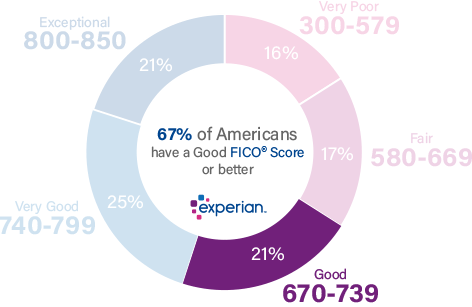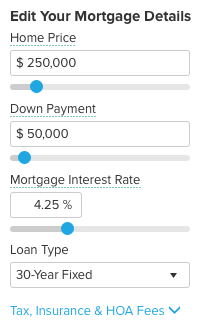Reverse mortgages were designed for older people to tap their house equity to increase their monthly money flow without the problem of monthly payments. To receive a reverse mortgage, you need to be at least 62 years of ages. Potential borrowers also should go through a house counseling session to make sure that they fully understand the ins and outs of a reverse mortgage.

Investment homes and villa don't qualify. You need to live at the home for more than six months of the year. Generally, you can't borrow more than 80% of your home's value, approximately the FHA optimum of $726,525 for 2019. Typically, the older you are, the more you can borrow.
" So, they are taking a look at getting a loan that deserves 68% of their home's Helpful site value." You're also needed to pay real estate tax, house owner's insurance coverage and home loan insurance coverage premium in addition to maintaining your house. Your lender will examine whether you have enough non reusable earnings to fulfill these commitments. In many cases, loan providers might require that some of the equity from the reverse home loan is reserved to pay those expenditures going forward.
That suggests the loan balance grows with time. For example, you may obtain $100,000 upfront, however by the time you pass away or offer your house and move, you will owe more than that, depending on the rate of interest on the reverse home loan. There are 5 ways to have the funds from a reverse mortgage distributed to you: You can take the money you're entitled to upfront.

Typically, these kinds of reverse mortgages come with a set rate of interest on the outstanding balance. You can receive the funds as a regular monthly payment that lasts as long as you remain in your home. This reverse home mortgage usually has an adjustable rates of interest. You can get funds month-to-month for a specific duration.
The rate of interest is also adjustable. Under this scenario, you don't take any cash at all. Rather, you have a credit line you can draw on at any time. The credit limit also grows over time based on its adjustable interest rate. You can also integrate the above options.
The 9-Minute Rule for How Does Chapter 13 Work With Mortgages
If you wish to change the options later, you can do this is by paying an administrative cost, Stearns said. If you desire to remain in your house for a long period of time in your retirement and have no desire to pass down your home to your kids, then a reverse mortgage may work for you.
The perfect reverse mortgage borrowers also are those who have built up considerable and varied retirement cost savings. "However they have considerable wealth in their house and they want as much spendable funds in their retirement as possible," said Jack Guttentag, professor of financing emeritus at the Wharton School of the University of Pennsylvania.
If you don't totally comprehend the home loan, you need to likewise prevent it. "These are complex products," Nelson said. "It's a mind twister to consider equity disappearing." If you desire to leave your house to your children after you die or vacate the house, a reverse mortgage isn't an excellent alternative for you either.
If you don't make your property tax and insurance payments, that might set off a foreclosure. Similarly, if you don't react to yearly correspondence from your lender, that could likewise trigger foreclosure procedures. Unfortunately, small Additional info infractions like not returning a residency postcard, missing tax https://gumroad.com/cuingod8dx/p/fascination-about-how-does-chapter-13-work-with-mortgages or property insurance payment, or poor servicing can lead to foreclosure quickly.
If your partner is not a co-borrower on the reverse home mortgage when you die, what occurs next depends upon when the reverse mortgage was secured. If it was taken out on or after Aug. 4, 2014, a non-borrowing spouse can remain in the house after the borrower passes away however does not get anymore of the loan funds as long as she or he meets these eligibility requirements: Married to the customer when the loan closed Remain wed till the debtor passes away Called as a non-borrowing spouse in the loan documents Live and continue to reside in the house as the main residence Able to prove legal ownership after the debtor passes away Pay the taxes and insurance coverage and preserve the house's upkeepThe borrower and spouse should certify at the loan's closing and every following year that they are still married and the partner is a qualified non-borrowing partner.
If these conditions aren't fulfilled, the partner can face foreclosure. For reverse home loans secured before Aug. 4, 2014, non-borrowing partners have less protections. The lending institution does not have to enable the non-borrowing partner to stay in the house after the customer passes away. A debtor and his/her partner can ask a lender to use to HUD to enable the non-borrowing partner to remain in your house - reverse mortgages how do they work.
Fascination About How Do Interest Only Mortgages Work
Some lending institutions offer HECM lookalikes but with loan limits that go beyond the FHA limit. These reverse home mortgages often are similar to HECMs. how do interest only mortgages work. However it is essential to understand any differences. Know how your reverse home loan expert gets paid. If paid on commission, be careful if the expert motivates you to take the maximum upfront money, which means a bigger commission.
" People don't look at reverse mortgages up until it becomes a need. They can be desperate." There are other ways for elders to unlock the equity they developed up in their houses over the decades without taking out a reverse home loan. If you require the equity for your retirement years, it's crucial to think about all choices.
The drawback is quiting the family home. But potential upsides include moving closer to family and acquiring a home preferable for aging in place. You can either re-finance or secure a brand-new home loan if you don't have an existing one and squander a few of the equity.
You could also obtain against your house equity utilizing a house equity loan or line of credit. A loan permits you to take a lump sum upfront that you repay in installation payments. With a credit line, you can obtain from it at any time, approximately the maximum amount.
A reverse mortgage loan, like a conventional mortgage, allows house owners to borrow money using their home as security for the loan. Also like a traditional home loan, when you secure a reverse mortgage, the title to your house stays in your name. Nevertheless, unlike a conventional mortgage, with a reverse mortgage, borrowers don't make month-to-month mortgage payments.
Interest and charges are added to the loan balance every month and the balance grows. With a reverse mortgage loan, house owners are needed to pay real estate tax and homeowners insurance, use the home as their principal house, and keep their home in excellent condition. With a reverse mortgage, the amount the house owner owes to the lender goes upnot downover time.
Fascination About How Do Roommate Mortgages Work
As your loan balance increases, your house equity reduces. A reverse mortgage is not complimentary cash. It is a loan where borrowed money + interest + fees every month = increasing loan balance. The house owners or their successors will eventually have to repay the loan, normally by offering the home.